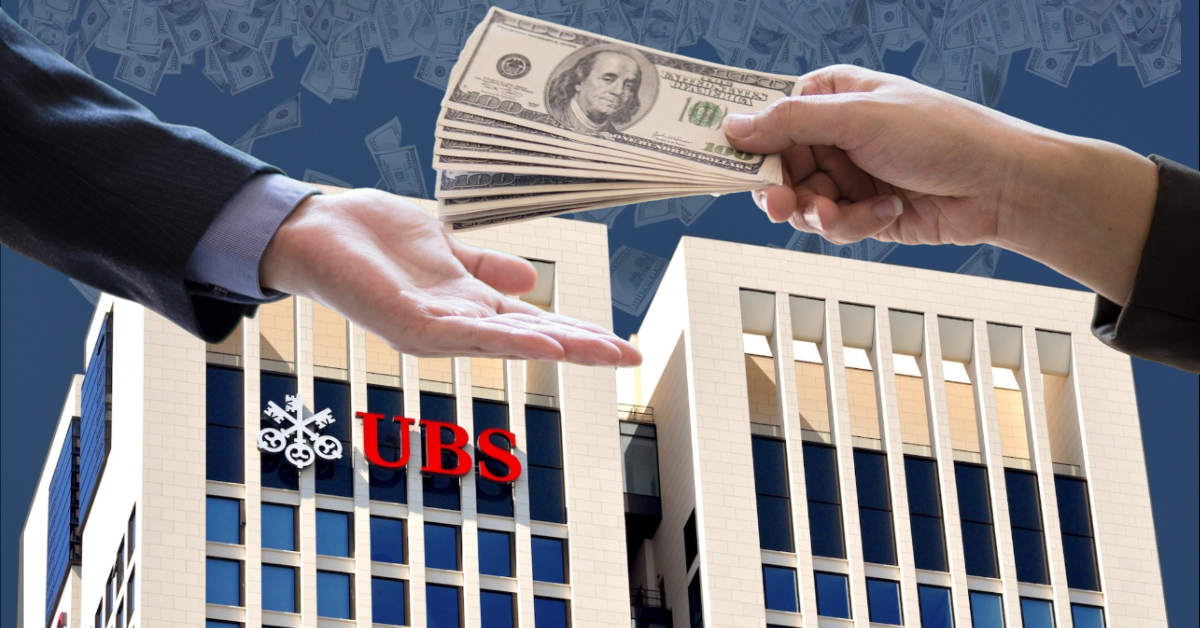UBS to Pay Nearly $1 Billion to Settle French Tax Evasion, Money Laundering Case
In a significant development for one of Europe’s largest banks, UBS Group AG has agreed to pay a reported €835 million ($985.6 million) to settle a long-standing tax evasion case in France. The settlement, announced on September 23rd, 2025, resolves allegations that the Swiss banking giant assisted its wealthy French clients in evading taxes between 2004 and 2012. The resolution marks the end of a legal saga that has spanned over a decade, highlighting the need for ongoing oversight over the activities of high-value global banks’ moving forward, specifically with respect to knowingly facilitating illicit financial activity on behalf of their cross-border clientele.
This case began as part of a broader regional crackdown on tax evasion across Europe, with France taking a particularly aggressive stance against financial institutions involved in such schemes. During an individual investigation that spanned over seven years, French regulators ultimately focused on discrepancies identified in UBS’ cross-border banking practices, ultimately finding that the bank engaged in illicit practices that involved setting up offshore accounts and other mechanisms to help their foreign clients to conceal their wealth. French authorities accused UBS of systematically targeting high-net-worth individuals, offering services that enabled them to evade taxes by hiding funds throughout Switzerland. Detailing these developments, the Financial Times writes that prosecutors argued that UBS bankers had used “self-erasing hard drives, business cards without logos and evasive tactics” to move about France in secret to enlist clients illegally at glamorous corporate events.1 Whistleblowers also alleged that UBS bankers solicited clients during “hunting trips, at operas and at the French Open tennis tournament”, with UBS countering that while its bankers did go to France and attended social events, prosecutors lacked evidence of the solicitation. Their initial plea however did little to thwart their ultimate conviction, though the financial giant did well in the years to follow to whittle down the charges from their original amount to one far more manageable.
UBS final settlement will see the lender pay €730 million ($854 million) in fines and an additional €105 million ($122 million) in civil damages to the French state. The bank has stated that it is fully provisioned for the settlement and will take the penalty in stride, setting aside funds to cover the financial impact several months ago, which will allow its normal daily activities to continue unimpeded. While staggering in its own right, the ultimate financial figure associated with these crimes represents only a fraction of the original €4.5 billion penalty announced by the French government in 2019, which at the time was the largest-ever criminal fine in the country’s history. At the time, the bank was ordered to pay this total in full following conviction on formal charges of unlawful client solicitation and aggravated money laundering. However, UBS ultimately appealed this court decision, and in 2021, a French appeals court reduced the penalty to €1.8 billion. The latest settlement of €835 million represents an even more significant reduction from these earlier rulings, providing UBS with a clear path to putting this issue behind them.
All told, UBS’s agreement to settle comes as the bank seeks to move past legacy issues and focus on its current operations, including its continued integration of Credit Suisse, which it acquired in 2023. The new agreement marks just the latest legal settlement for UBS, which inherited several other long-standing cases of impropriety as part of its acquisition of Credit Suisse, while adding even more to the balance sheet on what has already been a very costly year for the Swiss multinational lender. Just last month, UBS agreed to pay an additional $300 million as part of a settlement to resolve another inherited from Credit Suisse in relation to the alleged mis-selling of residential mortgage-backed securities across the United States leading up to the 2008 financial crisis.1 Further in May, UBS also agreed to pay more than $500 million to settle with the U.S. Justice Department following an investigation into how Credit Suisse helped wealthy American clients hide more than $4 billion from authorities.1 The latest settlement now allows UBS to avoid further protracted legal disputes and potential reputational damage, an important step as the financial staple continues its geographical expansion. In a statement, the bank emphasized its commitment to compliance and transparency, noting that the activities in question occurred over a decade ago and do not reflect its current practices.
For regulators and European authorities, the resolution of the French tax case adds to the broader trend of European authorities holding global banks accountable for past misconduct – setting a higher bar for more ethical banking practices moving forward. Similar cases have targeted other major institutions, with settlements often involving substantial fines and reforms to prevent future violations with hopes of deterring additional criminal activity in the years to come. The settlement also underscores the importance of maintaining robust compliance frameworks in the banking industry, as regulators continue to prioritize transparency and accountability as best practice. As UBS closes this chapter, the global banking sector will likely continue to face scrutiny over previous wrongdoing to set an example for future action. For now however, this settlement provides UBS with a measure of closure, allowing it to focus on its strategic priorities in an increasingly complex global financial landscape.
Citations
Foy, Simon, and Sarah White. “UBS Whittles €4.5bn French Tax Evasion Penalty down to €835mn.” Subscribe to Read, Financial Times, 23 Sept. 2025.

